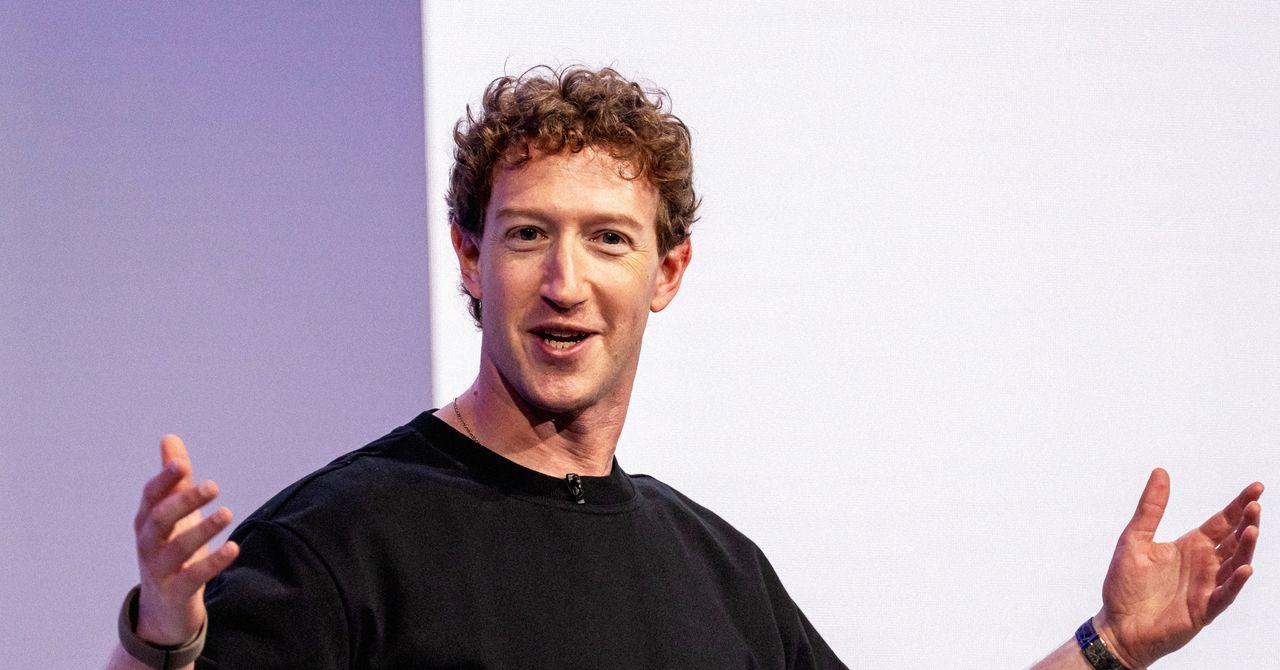Meta Poaches Top AI Talent: Yang Song Joins Meta Superintelligence Labs from OpenAI
2 Sources
2 Sources
[1]
Meta Poaches OpenAI Scientist to Help Lead AI Lab
Mark Zuckerberg has poached a high-ranking OpenAI researcher to be the research principal of Meta Superintelligence Labs (MSL). Yang Song, who previously led the strategic explorations team at OpenAI, is now reporting to Shengjia Zhao, another OpenAI alum who has overseen the buzzy AI effort since July, according to multiple sources. He started earlier this month. The move comes after Zuckerberg went on a hiring blitz earlier this summer, bringing in at least 11 top researchers from OpenAI, Google, and Anthropic. Song had been at OpenAI since 2022. His research there focused on improving models' ability to process large, complex datasets across different modalities. While still a graduate student at Stanford University, he developed a breakthrough technique that helped inform the development of OpenAI's DALL-E 2 image generation model. Both he and Zhao attended Tsinghua University in Beijing as undergraduates, and worked under the same advisor, Stefano Ermon, while pursuing PhDs at Stanford. In a staff-wide memo sent this summer, Zuckerberg touted Zhao's impressive resume as the cocreator of ChatGPT, GPT-4, all mini models, 4.1, and o3 at OpenAI -- but he did not specify Zhao's new role at Meta. In July, Zuckerberg wrote in a Threads post that while Zhao had "cofounded the lab" and "been our lead scientist from day one," Meta had decided to "formalize his leadership role" as the lab's chief scientist. The move came after Zhao threatened to return to OpenAI, even going as far as to sign employment documents, WIRED previously reported. A small number of researchers have left Meta Superintelligence Labs since the initiative was first announced in June. Two staffers have returned to OpenAI, WIRED previously reported. One of these researchers went through onboarding but never showed up for their first day of work at Meta. Another AI researcher, Aurko Roy, also left Meta in July, WIRED has learned. He'd worked at the tech giant for just five months, according to his personal website, which also says he now works on Microsoft AI. Roy did not immediately respond to a request for comment from WIRED. Yang Song, OpenAI, and Meta also did not immediately respond to a request for comment from WIRED. Song joins an already crowded field of big-name AI talent within Meta's increasingly complicated AI division. When Zhao was hired in July, some speculated that he had replaced Yann LeCun, Meta's longstanding chief AI scientist. In a LinkedIn post, LeCun clarified that he remained chief AI scientist for Facebook AI Research (FAIR), the company's longstanding foundational AI research lab.
[2]
Meta hires OpenAI's Yang Song for MSL research role
Meta recruits AI expert Dr. Yang Song, former OpenAI strategic explorations lead, as research principal for Meta Superintelligence Labs, reporting to Shengjia Zhao. Song, known for pioneering diffusion models behind tools like DALL‑E 2. Meta has hired former OpenAI researcher Yang Song as the research principal for its Meta Superintelligence Labs (MSL). Mark Zuckerberg recruited Song, who started at the company earlier this month, according to multiple sources. Song previously led the strategic explorations team at OpenAI. In his new position at Meta, he reports directly to Shengjia Zhao. Zhao, another OpenAI alum, has overseen the MSL initiative since July. A highly influential figure in the field of artificial intelligence, Dr. Yang Song is a research scientist recognized for his pivotal contributions to the development of diffusion models, a class of generative models that have significantly advanced the capabilities of AI in creating realistic images, text, and other data. Dr. Song recently made headlines in September 2025 for moving from OpenAI, where he led the strategic explorations team, to Meta's Superintelligence Labs as a research principal. His research has been instrumental in the development of powerful AI systems, and his work at Stanford University, where he earned his Ph.D., laid some of the foundational techniques for OpenAI's DALL-E 2 image generation model. He is also slated to become an Assistant Professor at the California Institute of Technology (Caltech) in the departments of Electrical Engineering and Computing + Mathematical Sciences. His work focuses on building powerful AI models capable of understanding, generating, and reasoning with complex, high-dimensional data across various modalities.
Share
Share
Copy Link
Meta has hired Dr. Yang Song, a prominent AI researcher, from OpenAI to join its Meta Superintelligence Labs. This move is part of Meta's ongoing effort to bolster its AI capabilities and compete with other tech giants in the field.

Meta's Strategic AI Talent Acquisition
Meta, the tech giant led by Mark Zuckerberg, has made a significant move in the competitive field of artificial intelligence by hiring Dr. Yang Song, a prominent AI researcher, from OpenAI. Song has joined Meta Superintelligence Labs (MSL) as a research principal, reporting to Shengjia Zhao, another former OpenAI alum who oversees the MSL initiative
1
.Dr. Yang Song's Impressive Background
Dr. Yang Song is a highly influential figure in AI, recognized for his pivotal contributions to the development of diffusion models. These models have significantly advanced AI capabilities in creating realistic images, text, and other data. Song's work at Stanford University laid the foundation for OpenAI's DALL-E 2 image generation model, showcasing his expertise in processing large, complex datasets across different modalities
2
.Meta's AI Talent Acquisition Spree
This hire is part of a larger trend at Meta, with Zuckerberg embarking on a hiring blitz earlier in the summer. The company has brought in at least 11 top researchers from competitors such as OpenAI, Google, and Anthropic. The move underscores the intense competition for AI talent among tech giants
1
.Meta Superintelligence Labs (MSL)
MSL is a relatively new initiative at Meta, with Shengjia Zhao, another OpenAI alum, leading the lab as chief scientist. Zhao's role was formalized after he threatened to return to OpenAI, highlighting the value Meta places on retaining top AI talent
1
.Related Stories
Implications for the AI Industry
The movement of high-profile researchers between major AI companies reflects the dynamic and competitive nature of the field. It also raises questions about the concentration of AI expertise in a few large corporations and the potential impact on innovation and research directions in the industry.
Meta's AI Organizational Structure
Meta's AI division is becoming increasingly complex. While Song and Zhao work within the Meta Superintelligence Labs, the company also maintains its longstanding Facebook AI Research (FAIR) lab, led by Yann LeCun as chief AI scientist. This structure suggests Meta is pursuing multiple avenues in AI research and development
1
.As the AI race intensifies, Meta's aggressive talent acquisition strategy clearly signals its commitment to remaining at the forefront of AI innovation. The addition of Dr. Yang Song to its ranks could potentially accelerate Meta's progress in developing advanced AI systems and applications.
References
Summarized by
Navi
[2]
Related Stories
Meta Appoints Ex-OpenAI Researcher Shengjia Zhao as Chief Scientist of New Superintelligence Lab
26 Jul 2025•Technology

Meta Poaches Top AI Talent from OpenAI to Bolster Superintelligence Team
27 Jun 2025•Technology

Meta's Ambitious Leap: Billions Invested in New 'Superintelligence' Lab Amid AI Race
10 Jun 2025•Technology

Recent Highlights
1
ByteDance's Seedance 2.0 AI video generator triggers copyright infringement battle with Hollywood
Policy and Regulation

2
Demis Hassabis predicts AGI in 5-8 years, sees new golden era transforming medicine and science
Technology

3
Nvidia and Meta forge massive chip deal as computing power demands reshape AI infrastructure
Technology





